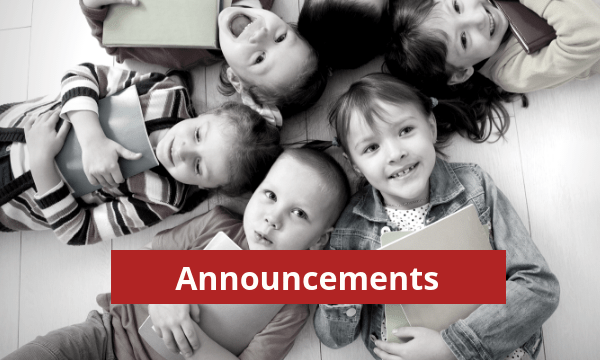
RFP: Kindergarten Readiness Family Focus Groups
Invitation
Organizations and consultants are invited to submit one response to the Children’s Institute’s Kindergarten Readiness Family Focus Groups Request for Proposal (RFP). To submit a proposal, applicants must comply with the instructions contained in this RFP. By submitting a proposal, the applicant agrees to the RFP terms and conditions. Competitive proposals will be considered for the Kindergarten Readiness Family Focus Groups project.
The RFP proposal due date is Friday, December 1, 2017 at 5:00 p.m. PST.
Instructions to Submit
Please submit your proposal electronically to Elena Rivera, Health Policy and Program Advisor, at elena@childinst.org by Friday, December 1st, 2017. Please include the title “Kindergarten Readiness Family Focus Groups” in the subject line.
Contact
Elena Rivera
Health Policy and Program Advisor
(503) 219-9034
elena@childinst.org
Children’s Institute Overview
Children’s Institute envisions an Oregon where every child is prepared for success in school and life. Children experience their most profound brain development in the first eight years of life, and the quality of life experiences during that time sets the foundation for all future learning and development. We advocate for strategic policies and investments in early education and healthy development, because investing early in kids and their families is the most effective strategy for improving long-term outcomes for Oregon’s children.
Kindergarten Readiness Family Focus Group Background
A primary goal of Oregon’s early learning system is ensuring that all children arrive at kindergarten ready for school. There is broad understanding that multiple family, community, early care and education, and health factors contribute to children’s kindergarten readiness. However, there is no consensus about the roles that various sectors play, or how they should work together toward the shared goal of kindergarten readiness.
Oregon’s early learning system is developing an early learning plan for the state, which will include priority actions and policies to improve young children’s kindergarten readiness. Oregon’s health system is seeking to identify metrics that can be implemented to hold the health system accountable for its role in kindergarten readiness. Decision-makers and stakeholders agree that these efforts should be informed by the perspectives of families. Children’s Institute can provide critical support to Oregon by taking the lead on gathering family input on key questions about kindergarten readiness.
Focus Group Purpose and Rationale
Children’s Institute is seeking support from an independent contractor to help conduct 6-8 focus groups with families in communities across Oregon to inform the development of a health system accountability measure related to kindergarten readiness, as well as the development of Oregon’s early learning plan. The purpose of the family focus groups is to solicit input from parents and caregivers on the definition and domains of kindergarten readiness that are most important to them, as well as their perspective on the roles of the health system and early learning systemi in promoting kindergarten readiness. While Oregon has undertaken some past work to gather family input about various early childhood topics, these efforts have tended to be regional and often narrowly focused on gathering input to inform a specific program. This will be the first statewide effort to gather family input on the roles of the health and early learning sectors in promoting kindergarten readiness.
Focus group findings will inform the state’s early learning plan, the process and outcomes of a technical work group dedicated to developing health metrics related to kindergarten readiness, and will be shared broadly with other stakeholders. Importantly, focus groups also present an opportunity for Children’s Institute to deepen relationships with communities across Oregon and build awareness about the importance of a comprehensive early learning system. The goal of the focus groups is to collect input from families to answer three overarching research questions:
- How do families define kindergarten readiness and what do they believe are the critical components of kindergarten readiness?
- How do families describe the role that the health system plays in promoting kindergarten readiness? [What can pediatricians and other health providers do to support their children’s healthy development? What can clinics/medical homes do to support their children’s healthy development? What positive experiences have families had, and what would they like to see improve?]
- How do families describe the role that the early learning system plays in promoting kindergarten readiness? [What can preschool teachers and child care providers do to support their children’s healthy development? What other early learning supports do families need/benefit from? What positive experiences have families had, and what would they like to see improve?]
Scope of Work
Children’s Institute is seeking external support from a contractor to plan and conduct family focus groups. The selected contractor will work closely with Children’s Institute’s Health Policy and Program Advisor and Kindergarten Readiness Consultant on key activities:
- Develop and refine the focus group protocol, leveraging similar research undertaken in other areas of the country to ask families about kindergarten readiness.ii,iii
- Develop and refine a sampling plan and outreach materials tailored to our target audience.
- Schedule and conduct 6-8 focus groups across Oregon, prioritizing communities where Children’s Institute has strong and growing relationships with partners (ranging from Multnomah County to Wallowa County).
- Write individual focus group summary reports of high-level themes on a rolling basis.
- Write an overall focus group summary report that identifies key findings across all focus groups.
- Our target audience is parents, caregivers, and family members of children ages 0-8. We seek input from families who are living in poverty, belong to racial/ethnic minorities, live in rural communities, and have children with developmental disabilities or special health needs.
All data must be collected, analyzed, and summarized by March 1, 2018.
This short timeline is driven by the processes and timelines for launching a kindergarten readiness metric technical workgroup and developing the state’s early learning plan.
Total project budget is not to exceed $72,000.
Proposal Submission Instructions
Please submit your proposal electronically to Elena Rivera, Health Policy and Program Advisor, at elena@childinst.org by Friday, December 1, 2017. Please include the title “Kindergarten Readiness Family Focus Groups” in the subject line.
Proposals should be no longer than 5 pages long (not including example work
products), and must include:
- Statement of organizational capacity, background and qualifications of individuals working on the project that includes:
- Experience conducting focus groups with parents/caregivers of young children, including: families living in poverty, culturally and linguistically diverse families, and families living in rural communities
- Example work products for similar projects
- References for similar projects
- Detailed budget and timeline to complete the project within the project timeline (by March 1, 2018) and within the project budget (not to exceed $72,000). The budget should include a clearly delineated fee structure tied to each task associated with the project (e.g. focus group facilitation, travel costs, participation incentives, data analysis).
All submissions are to be for a contractor position. As such, the contractor will be independent and not considered an employee of Children’s Institute. The successful contractor shall be responsible for payment of all social security and income taxes associated with payment for said services.
Notes
i ‘Early learning system’ refers to the programs and services that promote children’s development and learning before they enter kindergarten, and includes voluntary home visiting programs, Early Intervention and Early Childhood Special Education services, child care, and preschool.
ii http://geears.org/wp-content/uploads/GA-School-Readiness-Framework.pdf
iii http://trustforlearning.org/assets/F_TFL_ParentasConsumers_FullResearchReport_SinglePage_100317.pdf

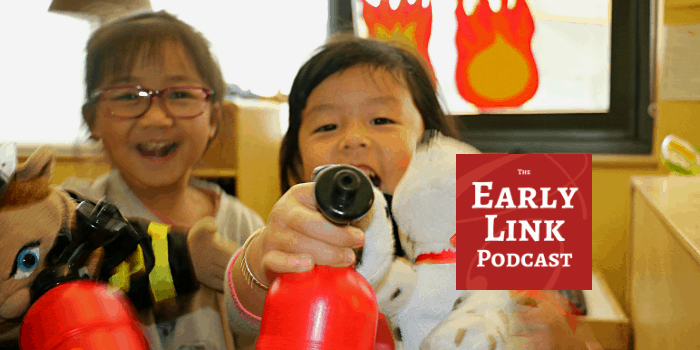
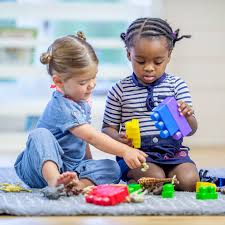
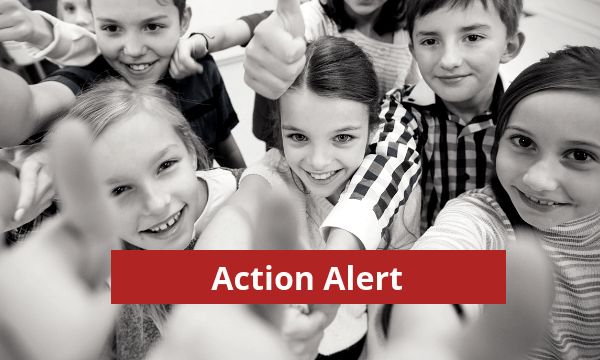
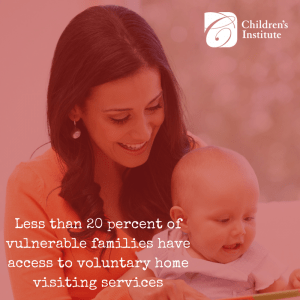 MIECHV funds high-quality, evidence-based home visiting services in Oregon’s voluntary home visiting system.You can help renew federal funding for the Maternal, Infant, and Early Childhood Home Visiting (MIECHV) Program by taking three actions.
MIECHV funds high-quality, evidence-based home visiting services in Oregon’s voluntary home visiting system.You can help renew federal funding for the Maternal, Infant, and Early Childhood Home Visiting (MIECHV) Program by taking three actions.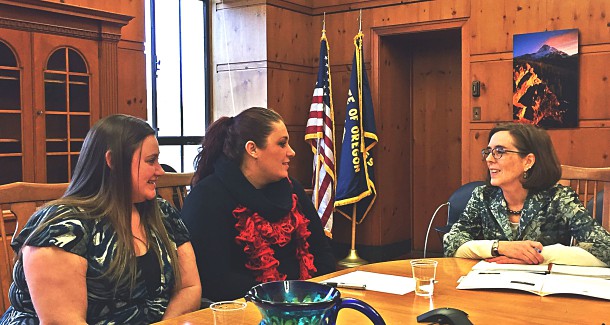
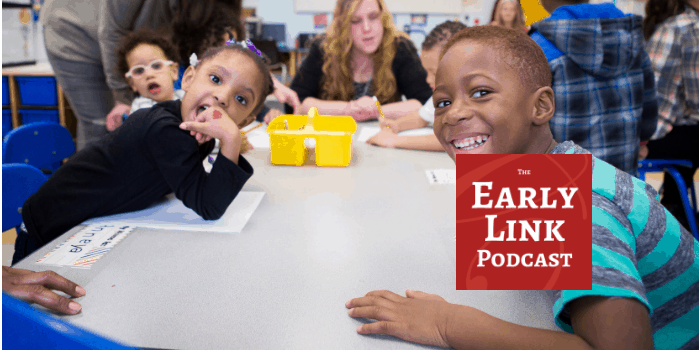
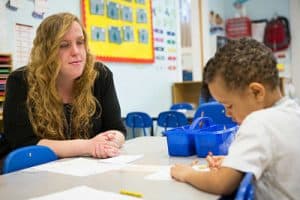 Angela Parsons gives us a parent’s perspective about her experience with Albina Head Start in North Portland. She talks about how her son made great strides with his academic and social emotional skills during two years in preschool, her renewed interest in Spanish thanks to the school’s focus on learning multiple languages, and her confidence in the school to keep her son learning and get him ready for kindergarten.
Angela Parsons gives us a parent’s perspective about her experience with Albina Head Start in North Portland. She talks about how her son made great strides with his academic and social emotional skills during two years in preschool, her renewed interest in Spanish thanks to the school’s focus on learning multiple languages, and her confidence in the school to keep her son learning and get him ready for kindergarten.